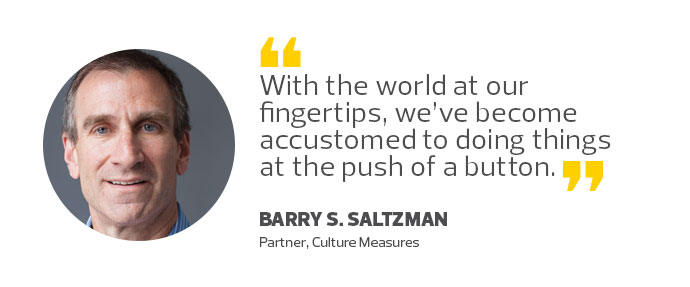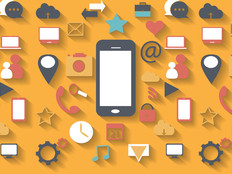4 Reasons Mobile Apps Will Become Part of Mainstream Business IT
Certain application names have seamlessly worked their way into our everyday vocabulary. When we need a ride, we may say we’ll “uber” to our destination. We “slack” our coworkers when we need something right away.
Think about this: The incoming generation of employees grew up without knowing what life before smartphones was even like. According to Nielsen, more than 80 percent of millennials own a smartphone and, like other smartphone users, rely on their phones and their apps to go about their day.
It’s about ease of use, convenience and doing more with less. Smartphones have evolved to the point where they can and do, in fact, help with a majority of everyday work tasks.
Whether we acknowledge it or not, as a workforce, we have become heavily dependent on apps to perform our jobs.
Here are four reasons why business leaders and IT teams should make mobility work seamlessly within the corporate infrastructure:
1. Convenience Trumps Everything
Our smartphones and mobile apps have made it incredibly easy to handle mundane tasks, such as managing our client lists or placing orders with the receiving department. With the world at our fingertips, we’ve become accustomed to doing things at the push of a button in our personal lives, and we aim to do the same on the job.
What’s more, mobile apps make it simple for employees and coworkers to communicate and collaborate easily with one another, regardless of location.

2. We Like to Stay Connected
A Pew Research study found that almost half of all smartphone owners report that they simply could not live without their devices. For some, phones are a way to stay connected to the internet, but for many, smartphones let us stay in communication with other workers — not only those in the office but staff at remote locations or in the field.
Even when not at work, people tend to check their phones for work email and text messages, or to see what’s happening on their office social channels. Companies not taking advantage of the productivity potential are missing out. In the United States, people are inclined to check their social media 17 times per day on average, according to a report from Informate Mobile Intelligence.
3. We Are Pressured to Innovate
Using apps in the workspace can make a company appear to be technically savvy. Consumers and clients alike are more inclined to flock to companies that showcase modernity and that seem to be on the cutting edge of technology.
Companies feel pressure to stay innovative and to become thought leaders. One way for a business to differentiate itself from its competitors is by creating a novel digital footprint.
4. Offices Are Becoming Increasingly Remote
With so many businesses supporting flex time and remote work options, mobile apps make it far simpler than it was just a few years ago for employees to connect to headquarters — no matter where they’re located around the globe.
Gallup found that 37 percent of all U.S. employees telecommute to work. What’s more, 60 percent of employees surveyed by PGi say they would leave their current jobs for full-time remote positions at the same pay rate. It’s therefore incumbent on IT teams to be able to support mobility for the masses, not the few.
The flip side of the equation is that managers also rely on mobile apps — to manage their employees on the go and ensure that deadlines and company goals are being met. Apps such as Google Drive and Dropbox provide access to the documents that managers and employees alike need to work on and share in near real time.
In the 21st century, employers will look to mobile apps as complements to other technology and a way to boost workplace productivity and efficiency. They’ll no longer be viewed as widgets on a mobile device screen that distract or keep employees from doing their jobs.









